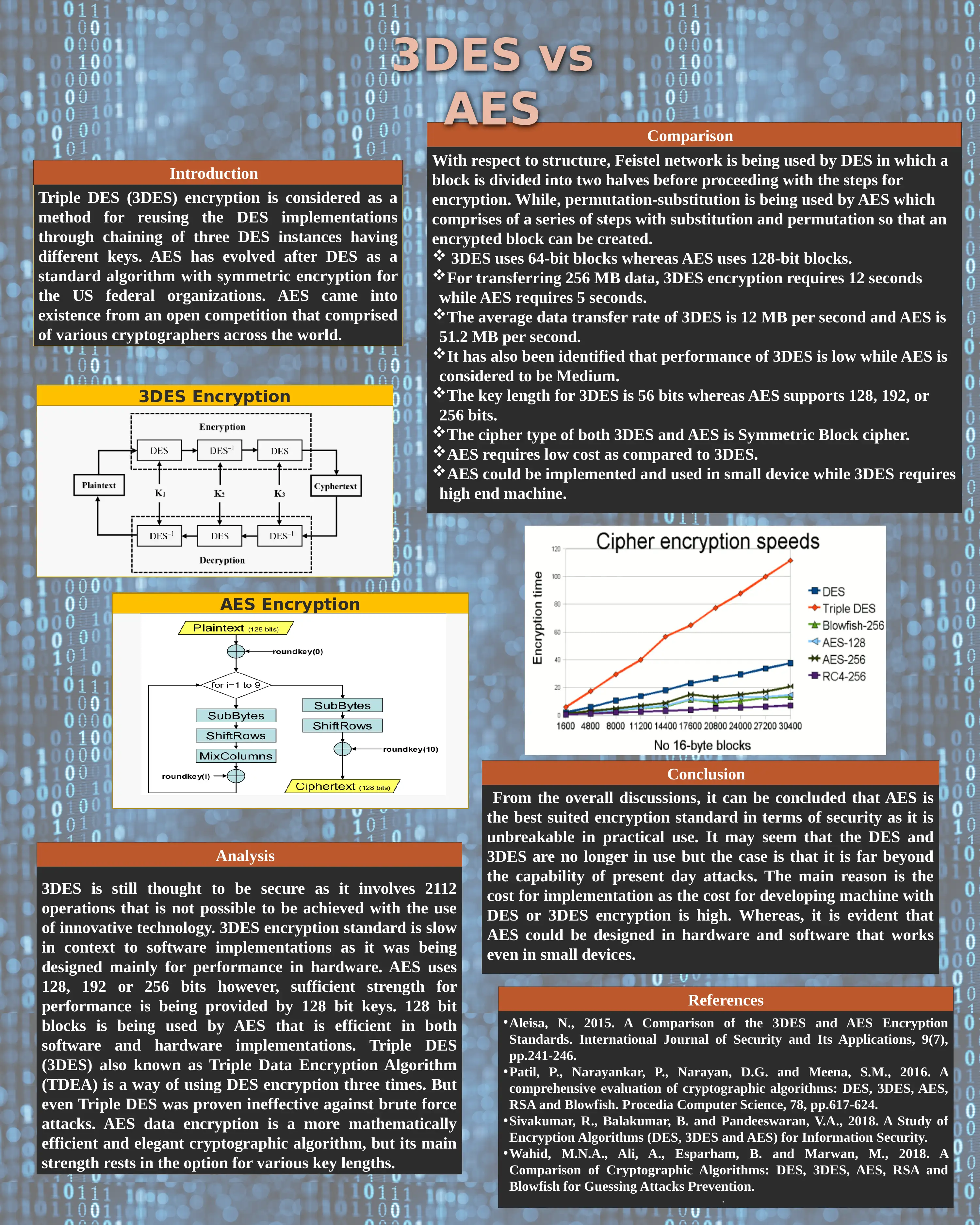Coventry University 350CT: Analyzing 3DES and AES Encryption Methods
VerifiedAdded on 2023/05/28
|1
|653
|476
Report
AI Summary
This report provides a comparative analysis of 3DES and AES encryption standards, key components of systems security. The report begins with an introduction to both algorithms, explaining their evolution and purpose. It then proceeds to compare the structures of 3DES and AES, highlighting differences such as block sizes and the use of Feistel networks versus permutation-substitution. A detailed comparison of their performance is provided, including data transfer rates and key lengths. The report also discusses the security aspects of both algorithms, evaluating the strengths and weaknesses of 3DES and AES against various attacks. The report concludes by recommending AES as the preferred standard for encryption, due to its superior performance and security features, while acknowledging the continuing relevance of 3DES in certain contexts. The report also includes references to relevant academic papers.







![[object Object]](/_next/static/media/star-bottom.7253800d.svg)